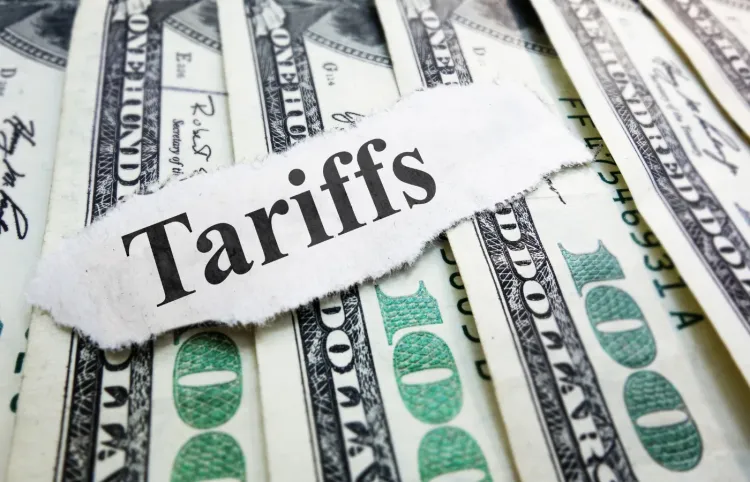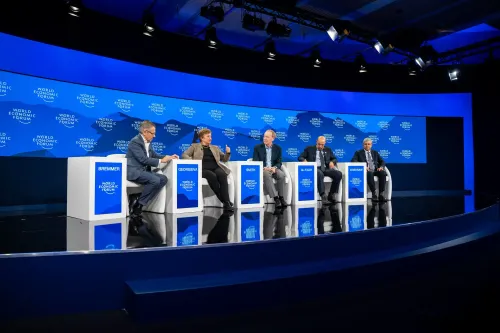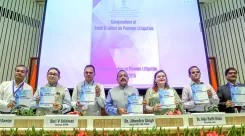US Reciprocal Tariffs: India Can Strategize for Easy Gains to Alleviate Broader Effects

Synopsis
Key Takeaways
- India should negotiate concessions in strategic sectors.
- Increasing energy imports from the US can be beneficial.
- Enhancing defense purchases and cooperation is vital.
- Tariff reductions on specific agricultural commodities are necessary.
- Lowering tariffs on foreign electric vehicles can aid negotiations.
New Delhi, March 27 (NationPress) With US reciprocal tariffs set to be implemented on April 2, India must engage in discussions by presenting concessions in several critical sectors that will not negatively impact its domestic industry but hold political or economic significance for US President Donald Trump. This strategy could facilitate tariff relief in other areas, according to a report released on Thursday.
In the rapidly evolving landscape of global trade, driven by Trump's affinity for deals, Emkay Global Financial Services has pinpointed several potential easy wins for India. These include boosting imports of energy (such as crude oil and natural gas) from the US, increasing defense purchases and collaboration, lowering tariffs on specific agricultural and food products, and reducing tariffs on imported electric vehicles (EVs).
Madhavi Arora, Chief Economist at Emkay Global Financial Services Ltd, indicated that the most likely scenario on April 2 will be broad sector-level reciprocal measures, as evaluating tariffs at the sector or commodity level across value chains is complicated.
“India will have to put in more effort to capture market share in this new phase of the global trade conflict. Ultimately, we believe that the tariffs will not severely impact India, as negotiations are expected to yield positive outcomes with minimal repercussions on total Indian exports to the US,” she stated.
Regarding tariffs on Mexico and Canada, there are potential export opportunities (like refined petroleum and auto components), but the integrated structure of North American supply chains suggests that any benefits will take time to materialize for India.
Trump has articulated his expectation that India will significantly reduce tariffs but has indicated his intent to move forward with implementing a reciprocal rate. “I suspect they will probably lower those tariffs significantly, but on April 2, we will impose the same tariffs they impose on us,” he commented last week.
Union Commerce Minister Piyush Goyal recently traveled to Washington and met with US Trade Representative Jamieson Greer and US Commerce Secretary Howard Lutnick to attempt to prevent the tariff increases.










